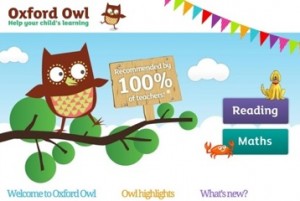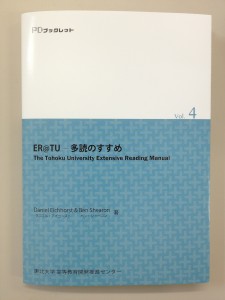conference extensive reading graded readers Language learning presentations Reading
by sendaiben
4 comments
Readability (and the lack of it) in graded readers
At the JALT Pan-SIG conference a few weeks ago (my favourite conference in Japan) I attended two extremely thought-provoking lectures, back to back. Both of them were talking about something very similar, something that has also been coming up in conversations with students this week.
The topic was readability of graded readers, or why some books are easier to read than others.
Marcos Benevides has a great blog post outlining the content of his talk. It’s well worth taking a few minutes to read that now.
Amanda Gillis-Furutaka, from Kyoto Sangyo University, talked about her fascinating research into the specific problems students have when reading English text. Her findings were echoed by my students when I talked to them about their reading in extensive reading classes this week. If you have the chance to attend one of her presentations on this topic at JALT or elsewhere, please consider doing so.
So what makes books difficult for students (focusing on students reading texts up to around 1000 headwords, ie beginner to lower-intermediate readers)? In short, the following:
-number of characters (the more characters the harder it is to understand the story)
-the complexity of the language (modal verbs and allegory are a real barrier to understanding)
-literary devices such as changing between different perspectives, changing from the present to the past suddenly, or unexpected plot twists
While these insights are perhaps most useful to authors and publishers, they can also help teachers recommend books for students (and know which books to put off until later!). Really interesting stuff, and I’m looking forward to reading Ms Gillis-Furutaka’s research when she publishes it.
EFL eikaiwa ES extensive listening extensive reading kids language courses Language learning materials online resources oxford owl Oxford Reading Tree Reading self-study websites young learners
by sendaiben
leave a comment
Oxford Owl website
This is another post I have been meaning to write for a while. Oxford Owl is a free website created by Oxford University Press. It has a range of useful resources -I’ll briefly list a few here.
The website has reading and maths sections. I haven’t done much with the maths so far.
The reading section has a range of free ebooks from the Oxford Reading Tree series. Most of the books can be read online, and feature the art, text, and audio. This is a wonderful resource for self-study at home or in the classroom.
There are also a couple of online games and a range of printable resources for students.
Finally, there is a lot of advice for teachers and parents on how to teach reading and support students with reading practice. Although much of this is aimed at native speakers, a lot of it transfers quite well to EFL.
Is anybody using Oxford Owl? Any good features I have missed? Please leave a comment below:
curriculum expectations extensive reading language courses materials Reading school management teaching university
by sendaiben
26 comments
The Tohoku University Extensive Reading Manual
I am so thrilled to finally have this on my desk.
This is a 136-page bilingual handbook describing the extensive reading program at Tohoku University. It includes a detailed description of the curriculum, examples of handouts and other materials, and guides to adapting the program to other contexts.
For a limited time, free copies are available. Please leave a comment with your name and work address if you would be interested in receiving one. Alternatively, see me (Ben Shearon) at the JALT Pan-SIG Conference in Nagoya (May), the 2nd Extensive Reading World Congress in Seoul (September), or the JALT National Conference 2013 in Kobe (October) to get a copy.
google online resources personal public service announcement Reading technology
by sendaiben
leave a comment
Google Reader: the end of an era
This is only going to be of interest if you use Google’s excellent Google Reader service to consume your web content via RSS feeds.
If you have no idea what that means, stop reading now 😉
I logged into Google Reader a couple of days ago to discover that Google is planning to discontinue the service in July. Seems like they weren’t able to monetize it sufficiently, or there weren’t enough users, or something data-driven like that.
While I’m sure they have their reasons, I was unpleasantly surprised. I’ve been using Reader for years now to read blogs and webcomics and really like the simplicity, and how well it syncs across computers and mobile devices.
Fortunately I am not the only one with this problem, and it seems as though Feedly has decided that they would like to snap up all of the Google Reader customers. If you go to their website, you can sign in with your Google account and when the time comes they will migrate all your settings to their system.
I’ve been playing with Feedly on Windows and my iPhone since yesterday and so far it seems like a good solution. It’s not the same as Reader, but it comes close, and I’m sure it will be fine once I get used to it.
So as a public service announcement, if you need a replacement for Reader, Feedly seems like a relatively painless solution.
curriculum EFL evaluation expectations extensive reading Japanese Language learning presentations readers Reading teaching university
by sendaiben
leave a comment
ER@TU (Extensive Reading at Tohoku University)
I gave this short (30m) presentation about our ER program here at Tohoku University. The presentation is in Japanese.



